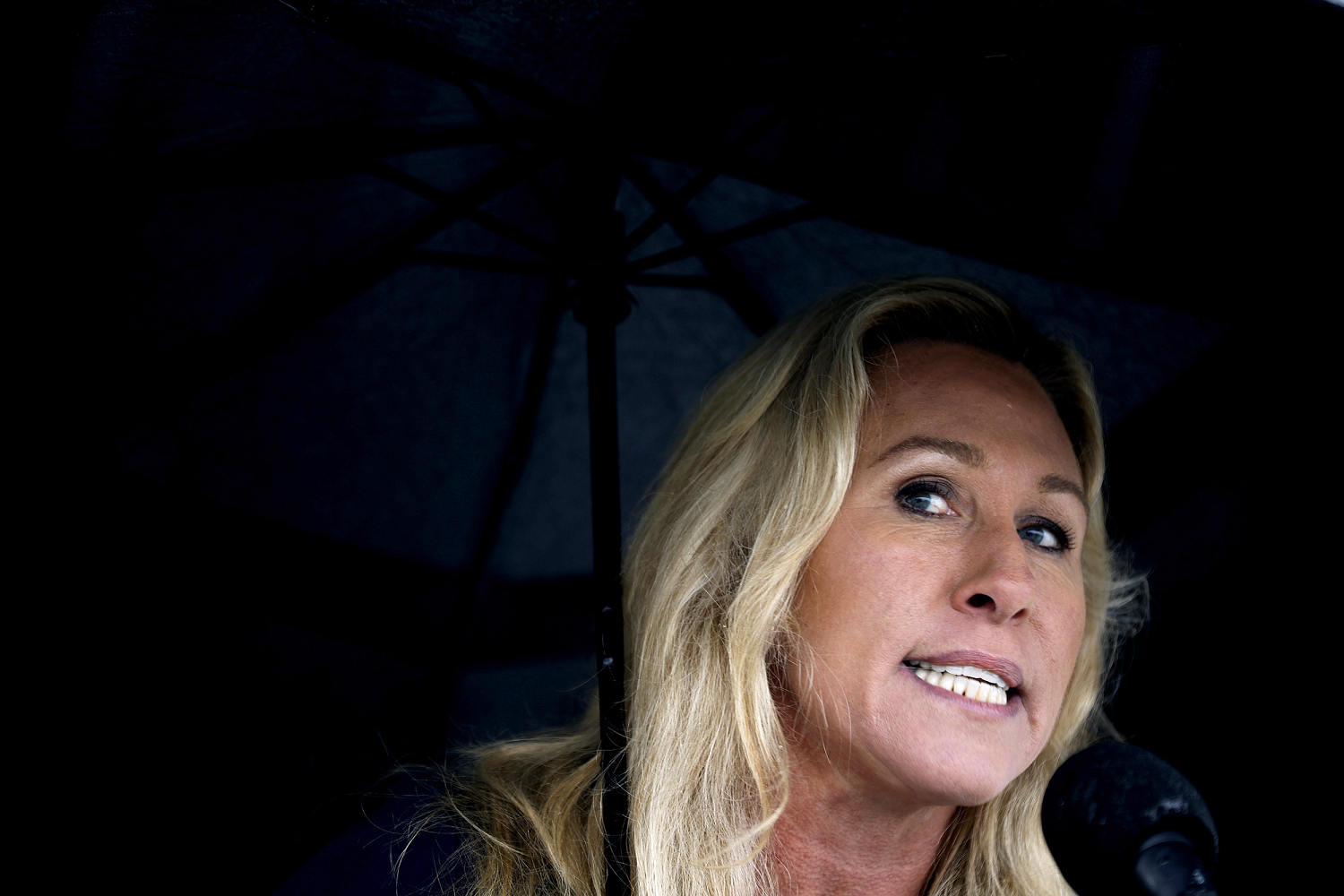
Just as people will move from denial to bargaining before reaching acceptance, a political cause facing a mortal danger can go through its own stages of grief.
And we now seem to have reached a new stage of climate change denial, as shown by some deniers’ recent attacks on weather modification.
On Saturday, with the waters still receding from deadly flooding in Texas, Republican Rep. Marjorie Taylor Greene of Georgia posted that she would be introducing a bill to ban the “dangerous and deadly practice of weather modification.” Greene said the bill would be similar to Florida’s recently passed Senate Bill 56, which imposes up to a $100,000 fine and a possible five-year prison sentence for “geoengineering” practices such as cloud-seeding. Far from nefarious, scientists in states across the U.S. have been using cloud-seeding — the dispersal of tiny silver iodide crystals — to encourage rain and snow in drought-ridden areas for decades.
Although Greene didn’t tie the proposed bill to the floods that have left at least 104 dead or missing across six Texas counties since Friday, neither did the timing of her announcement feel exactly coincidental. A Republican running for another House seat in Georgia, Kandiss Taylor, went further in X posts on Saturday that claimed that both the Texas floods and Hurricane Helene were caused by “cloud seeding, geoengineering & manipulation,” calling it “fake weather” that amounted to “murder.” Similar misinformation was amplified on social media by MAGA figures like President Donald Trump’s former national security advisor Michael Flynn.
Greene and Taylor are echoing claims made by a small but growing contingent of Republican lawmakers who are increasingly pointing to an alternative theory for extreme weather events too frequent to ignore. Last year, Tennessee became the first state to ban geoengineering, with some legislators making comments during debate that sounded like old conspiracy theories about plane contrails. In April, the Florida Senate passed a ban on weather modification that Greene highlighted, while lawmakers in Arizona, Kentucky, Texas and Pennsylvania have also proposed legislation.
It’s a bizarre cause to take up. While cloud seeding is a decades-old technique for increasing rainfall commonly used in drier states, there are still questions about how effective it really is — and there is no evidence that it is powerful enough to change the direction or intensity of hurricanes or major storms.
But that is beside the point. If you take a step back, what Greene and others are suggesting is that a natural disaster could have been made worse by people putting chemicals in the atmosphere. All you need to do is substitute “silver iodide” with “greenhouse gases” and they’d be in basic agreement with the general consensus among the scientific community on climate change first reached in 1990.
Back in the 1990s, oil and gas companies were literally borrowing the playbook developed by the tobacco industry to fight anti-smoking laws by raising doubts about the basic science. A typical industry missive argued that the country was suffering from “Chicken Little Syndrome” and that scientists weren’t even certain that global warming was real.
After a while, that became harder to defend, so in 2002, political strategist Frank Luntz advised Republicans in an infamous memo to emphasize the debate.
“Should the public come to believe that the scientific issues are settled, their views about global warming will change accordingly,” he wrote. “Therefore, you need to continue to make the lack of scientific certainty a primary issue in the debate, and defer to scientists and other experts in the field.”
By 2012, that line of argument had become so entrenched that then-Sen. Marco Rubio, R-Fla., couldn’t even answer a question about the age of the Earth without saying “I’m not a scientist, man.”
But with the global average surface temperature rising, ice sheets melting and hurricanes becoming more powerful, it’s become harder to defend that line in recent years, and deniers have moved on. Some argue that climate change is natural, as when Sen. Ted Cruz, R-Texas, said that “the climate has been changing from the dawn of time.” Or they’ve switched to raising doubts about the cause, as when Sen. John Hoeven, R-N.D., said “the science shows there’s warming” but said “there’s different opinions” on the cause. Or they’ve even acknowledged that “mankind is a small contributor” while maintaining that most of it is beyond our control, as Sen. Cynthia Lummis, R-Wyo., once said.
(Trump remains stuck at an earlier stage, although he has moved from calling climate change a “hoax” to arguing that potential solutions are all hoaxes.)
Greene, Taylor and some of these other state lawmakers are running parallel to the truth: Greenhouse gas emissions from burning coal, oil and natural gas are trapping more heat from the sun, increasing global temperatures and disrupting weather patterns in destructive ways. And their calls to prosecute the people supposedly behind it are even stronger than those of mainstream environmentalists, who are generally more focused on civil lawsuits than criminal charges.
Attacking cloud-seeding is an unhelpful argument, to be sure. But the fact that climate change deniers are making it could be a sign that they’re running out of ways to keep denying climate change. Perhaps they’ll try the facts next.

Leave a Reply